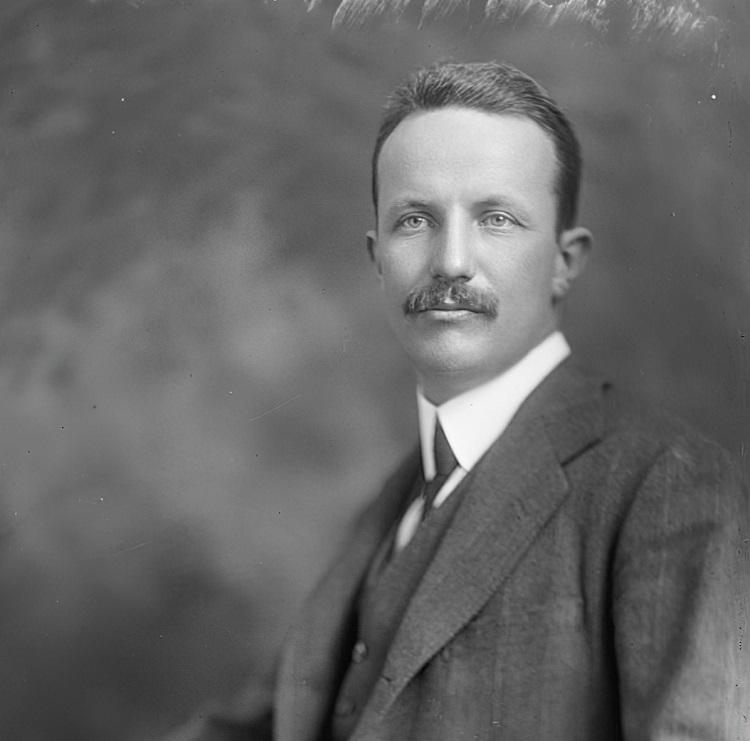Kermit Roosevelt was born into a prominent American family on October 10, 1889. His father, Theodore Roosevelt, served as the 26th President of the United States and was known for his adventurous spirit. Kermit inherited this spirit and would go on to live a life filled with travel, exploration, and military service.
Kermit was a quiet but curious child with a talent for writing and a love of reading. He attended schools in both Oyster Bay and Washington, D.C. before being accepted to the prestigious Groton School in Massachusetts. He went on to attend Harvard University, where he graduated in 1912.
During his freshman year at Harvard, Kermit accompanied his father on an expedition to Africa. The trip sparked Kermit’s interest in exploration and led him to join his father on another expedition in 1913. This time, the pair explored the uncharted River of Doubt in Brazil, with Kermit emerging as a crucial figure in the mission.
After returning from Brazil, Kermit married Belle Wyatt Willard, the daughter of the U.S. Ambassador to Spain. They went on to raise four children together. Kermit took various jobs in the banking industry before joining the British military when World War I broke out. He was awarded the British War Cross before joining the American Expeditionary Force in 1918, where he served as a successful captain.
Kermit was affected by the Great Depression and struggled with heavy drinking, leading to a decline in his business ventures and family life. Upon the outbreak of World War II, Kermit served again with the British Army, but his alcoholism continued to plague him. His wife and brother lobbied their cousin, President Franklin D. Roosevelt, to get Kermit a post in the U.S. Army to help combat his addiction. He was stationed at Fort Richardson in Alaska, but the assignment did not have the desired effect. Kermit was soon medically discharged from the Army and took his own life shortly after.
Kermit’s legacy includes a number of honors and achievements. He authored several books on hunting and exploration and played a critical role in the development of the United States Merchant Marine. The town of Kermit, Texas, and the USS Kermit Roosevelt were named in his honor. However, his untimely death and battle with alcoholism remain a tragic aspect of his legacy.
Kermit Roosevelt’s legacy is defined by his many travels and his work in conservation efforts. Kermit’s father, Theodore Roosevelt, was an ardent conservationist and a founder of the Boone and Crockett Club. Kermit followed in his father’s footsteps and became an active member of the club. He also served as vice president of the New York Zoological Society from 1937 to 1939. He was deeply committed to preserving wildlife and wilderness areas, and he used his writing to advocate for conservation efforts.
Kermit Roosevelt’s adventurous spirit also extended to his personal life. He had a love of hunting and was known for his skills as a marksman. In 1925, Kermit and his brother Ted went on a hunting expedition across the Himalayas in search of the legendary bighorn wild sheep called Ovis poli. They documented their journey in their book East of the Sun and West of the Moon, which includes descriptions of their encounters with native cultures and dangerous wildlife.
Kermit Roosevelt’s death by suicide in 1943 was a tragedy for his family and friends. He had fought a lifelong battle with depression, and his struggles with alcoholism had taken a toll on his personal and professional life. His death was a painful reminder of the devastating effects of mental illness and addiction. Kermit’s family continued to honor his memory and his legacy, and his contributions to conservation efforts and his writing continue to inspire generations.
Kermit’s youngest son, Dirck Roosevelt, also had a tragic end. Dirck died in a military plane crash in 1953 while serving in the U.S. Air Force during the Korean War. The Roosevelt family has suffered many losses, but their legacy as a prominent American political family and conservationists endures.
Kermit Roosevelt’s life and work have been the subject of several books and documentaries. In 2005, Candice Millard published The River of Doubt, a detailed account of Kermit and his father’s expedition in Brazil. The book offers a fascinating look into the challenges and dangers of exploration and the complex relationship between Theodore and Kermit. Their relationship was one of mutual admiration, but also of intense competition and the struggle for individuality.
Kermit Roosevelt’s life was defined by his love of adventure, his commitment to conservation efforts, and his battles with mental illness and addiction. He was a gifted writer, a dedicated soldier, and a beloved family man. Although his life was cut short, his legacy lives on through his writings, his family, and his contributions to conservation efforts. Kermit’s life serves as a reminder of the importance of preserving our natural resources and the fragility of the human spirit.
References:










